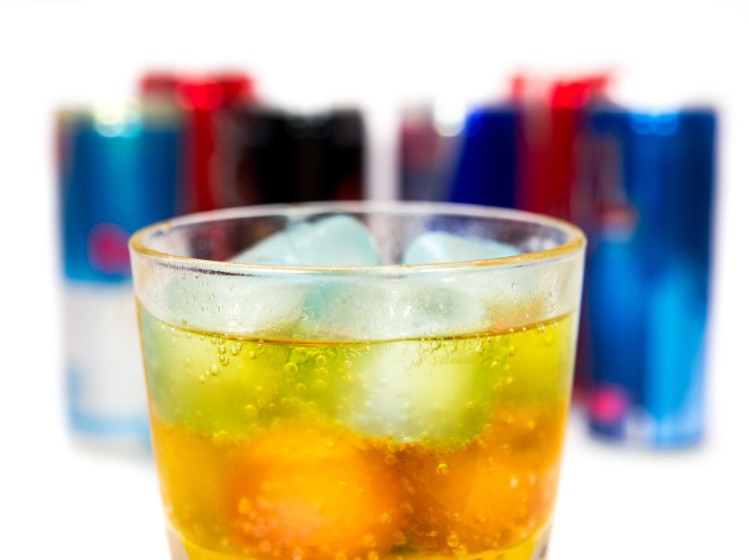
If you’re like me you live off energy drinks. They’re often seen as being full of health benefits – giving you lots of vitamins coupled with the energy they provide. While some have a ton of sugar, there are others with sugar free options. (Sugar Free Red Bull is my go to.) As it turns out, popular energy drinks may not be as healthy as advertised and in some cases can even be harmful.
A recent study now suggests that energy drinks can make your blood vessels less efficient. Compounds in these drinks limit how much your blood vessels are able to dilate or widen. Blood vessels widen when a specific area of the body needs more blood, nutrients, or oxygen. For example, if you’re working out your biceps – your body will widen or dilate the vessels in your biceps so that more blood along with nutrients and oxygen can supply your biceps muscle. Energy drinks limit this dilation and you may not get enough blood to the areas that need it. Often this effect is compounded because these drinks are often used either before or during exercise; at a time when your vessels need to be dilated and functioning at peak capacity. Thus blood flow and oxygen delivery is restricted.
As one researcher explains, this creates “more work for the heart and less oxygen supply for the heart. This could explain why there have been cases where kids have had a cardiac arrest after an energy drink.” Many people worsen the effect by chugging the whole drink at once. I’m guilty of this myself – and then feeling like my heart was racing out my chest.
The study these finding are based on is small – it only had 44 participants. All were healthy, non-smoking medical students in their 20’s. The researchers tested the effect of a 24-ounce energy drink on cells lining blood vessels, called endothelial cells. After 90 minutes, the internal diameter of blood vessels tested was on average dramatically smaller.
While the study showed this negative effect it did not identify the specific ingredient or compound responsible for this. There are several suspects, however, including caffeine, taurine, sugar and other herbals.
A major problem is that the FDA (Food & Drug Administration) only regulates products defined as foods or drugs. They for example ensure that coffee drinks and soda, for instance, aren’t allowed to be too high in caffeine lest they cause heart problems. Energy drinks, however, are classified as supplements, which means they’re unregulated. Manufacturers can put as much caffeine and other stimulants inside a single can as they want.
Negative press isn’t new. Back in 2015, Mayo Clinic researchers demonstrated that a single beverage raised the drinker’s blood pressure and cortisol levels (a measure of stress).
Here in the U.S., we don’t track adverse events specifically related to energy drinks—they’re all just lumped under caffeine-related events. Other countries do. Watch Dogs from Germany have indicated that since 2002, energy drinks have caused “liver damage, kidney failure, respiratory disorders, agitation, seizures, psychotic conditions, rhabdomyolysis, tachycardia, cardiac dysrhythmias, hypertension, heart failure, and death.” Some countries have even tried eliminating energy drinks altogether. France managed to ban them for a brief time, but the ban was overturned.
In conclusion there seems to be some evidence out there that these drinks can be harmful – and if you want to drink them – then moderation is key. Coffee or tea may both be healthier options that can also perk you up.
*The views and opinions expressed herein are those of the author and do not necessarily reflect the views of MDLingo.com, its affiliates, or its employees.